A seed sower is an agricultural device designed to plant seeds efficiently and with precision. This tool is essential for modern farming, enabling the distribution of seeds at the correct intervals and depths, ensuring optimal growth conditions. The seed sower has evolved from simple manual devices to sophisticated machinery that can cater to various types of seeds and terrains. Alibaba.com offers a diverse range of seed sowers suitable for different agricultural needs.
Types and Characteristics of Seed Sowers
The array of seed sowers on Alibaba.com encompasses a wide range of characteristics tailored to different agricultural requirements. Single-row seed sowers are ideal for smaller or specialized farming operations, where precision is key. In contrast, multi-row seed sowers are engineered for efficiency across extensive acreage, capable of planting multiple rows of seeds in a single pass. Specialized seed sowers, such as those designed for delicate seeds like carrots, feature gentle handling and precise depth control to accommodate the unique requirements of such crops. No-tillage seed sowers are a testament to agricultural innovation, allowing seeds to be planted without disturbing the soil, thereby preserving its structure, conserving moisture, and reducing erosion. Each type of seed sower is designed with specific characteristics to enhance its suitability for the intended crop and farming practice, ensuring that every seed has the best chance for successful germination and growth.
Structure and Operation of Seed Sowers
The seed sower's structure is a complex assembly designed to optimize the planting process. The hopper, which holds the seeds, is meticulously shaped to allow for a smooth and consistent flow into the metering system. This system is pivotal, as it precisely controls the seeding rate, a critical factor in achieving uniform crop stands. The delivery system, typically consisting of a series of tubes and chutes, is engineered to place seeds at a predetermined depth and spacing in the soil. Some advanced models incorporate GPS technology to ensure precise row alignment and even distribution, which is particularly beneficial in large-scale farming operations where efficiency and accuracy directly impact productivity and profitability.
Materials and Properties
Seed sowers are constructed from a variety of materials chosen for their specific properties to withstand the demands of agricultural use. Metals such as high-grade steel are commonly used for structural components due to their strength and durability. Plastics may be employed for non-structural parts where flexibility and resistance to corrosion are beneficial. These materials are selected not only for their physical properties but also for their performance in a range of environmental conditions. For instance, the use of UV-resistant plastics can prevent degradation from prolonged sun exposure. The thoughtful selection of materials ensures that seed sowers can operate reliably over many planting seasons, even under the challenging conditions of outdoor agricultural work.
Business Usages and Applications
Seed sowers have a broad spectrum of business applications across the agricultural industry. They are a cornerstone in the operations of commercial farms, where they drive the mass production of staple crops such as wheat, corn, and soybeans. In specialty crop nurseries, seed sowers are used to initiate the growth of everything from vegetables to ornamental plants, facilitating efficient and uniform seedling production. Agricultural research institutions also rely on the precision of advanced seed sowers to conduct experiments and develop new crop varieties. The use of seed sowers across these diverse settings illustrates their role in enhancing productivity, ensuring consistent plant quality, and contributing to the overall profitability of agricultural enterprises.
Functions and Tasks
The primary function of a seed sower is to distribute seeds evenly across farming plots. However, the capabilities of these machines extend far beyond simple seed placement. Many modern seed sowers are equipped with additional functionalities such as simultaneous soil fertilization, adjustable planting depths, and variable seed spacing. These functionalities are crucial for optimizing growing conditions and can be adjusted to suit a wide range of seed types and soil conditions. The ability to perform multiple tasks with a single piece of equipment streamlines the planting process, saving time and reducing the need for multiple passes over the field, which can compact the soil and affect crop growth.
Features and Unique Selling Points
Seed sowers on Alibaba.com are distinguished by a variety of features that enhance their appeal to agricultural professionals. These features include user-friendly interfaces that simplify the setup and operation of the machinery, adjustable settings to accommodate a wide range of seed sizes and types, and durable construction that ensures reliability over time. Unique selling points such as smart technology integration for precision planting and the ability to operate effectively in diverse soil conditions set these machines apart from competitors. The inclusion of such features makes these seed sowers not just tools for planting, but partners in the agricultural process, providing farmers with the technology they need to meet the challenges of modern farming.
Benefits and Positive Outcomes
The use of a seed sower brings about numerous benefits, including increased planting efficiency, reduced seed wastage, and improved crop yields. These benefits translate into tangible positive outcomes for the user, such as cost savings, higher profitability, and more sustainable farming practices. The precision afforded by modern seed sowers ensures that each seed is given the best possible start, leading to stronger, healthier plants and a more uniform crop. This not only improves the marketability of the harvest but also contributes to the conservation of resources by minimizing the need for additional inputs such as water, fertilizers, and pesticides.
How to Use and Operate a Seed Sower Effectively
Effective operation of a seed sower begins with proper calibration, which involves setting the machine to match the seed type and desired planting density. The operator must ensure that the sower is correctly attached to the tractor or power source and that all components are functioning smoothly. Soil preparation should be tailored to the crop's needs, and the sower's settings adjusted accordingly. Regular checks during operation can help detect and correct any issues with seed flow or spacing, ensuring that the planting process remains efficient and effective.
How to Choose the Right Seed Sower
Choosing the right seed sower is a critical decision that can affect the success of the planting season. Factors to consider include the size of the area to be planted, the types of seeds used, and the specific requirements of the crop. Prospective buyers should also evaluate the level of after-sales support offered, including the availability of spare parts and technical assistance. Key selling points such as ease of operation, adaptability to different seed types, and low maintenance requirements should be weighed against the specific needs of the farming operation to find the best fit.
How to Maintain Your Seed Sower
Maintenance of a seed sower is essential for ensuring its longevity and optimal performance. This includes routine cleaning to prevent clogging and corrosion, lubrication of moving parts to reduce wear, and regular inspection for any signs of damage or wear. Adhering to the manufacturer's recommended service intervals and using genuine parts for repairs can help maintain the machine's performance and reliability. Proper maintenance not only extends the life of the seed sower but also ensures it operates at peak efficiency, providing the best return on investment.
What After-sales Services Are Available?
After the purchase of a seed sower, customers can access a variety of after-sales services provided by suppliers on Alibaba.com. These services may include online support, video technical support, and the availability of engineers to service machinery overseas. It is important for buyers to inquire about the scope of these services prior to purchase to ensure comprehensive support for their investment. Effective after-sales services can significantly enhance the user experience by providing assistance with operation, maintenance, and troubleshooting, thereby ensuring the seed sower remains a valuable asset to the agricultural operation.

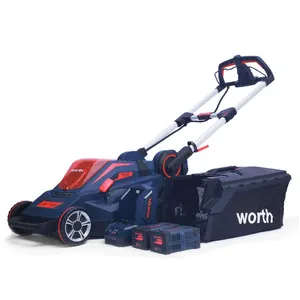












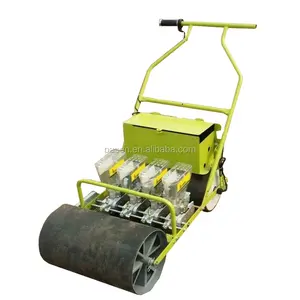
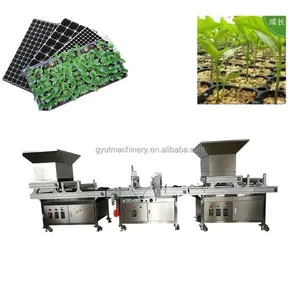

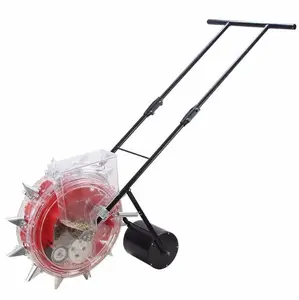

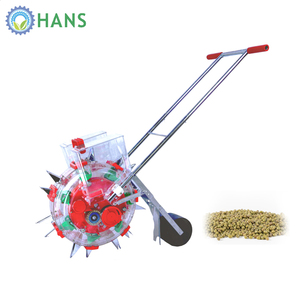

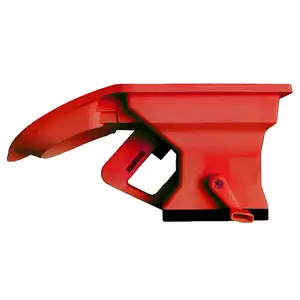













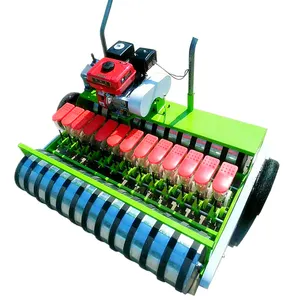



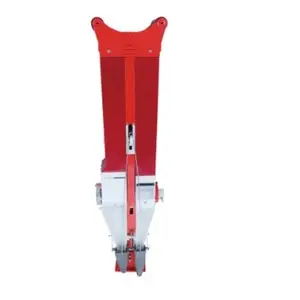
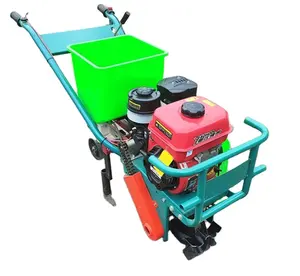






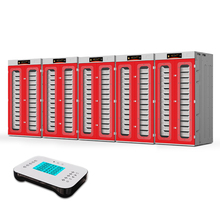
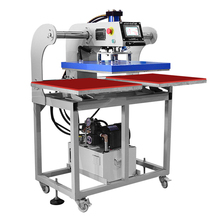
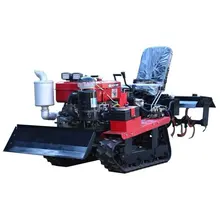



























 浙公网安备 33010002000092号
浙公网安备 33010002000092号 浙B2-20120091-4
浙B2-20120091-4